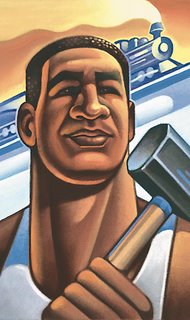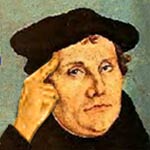Tuesday, March 28, 2006
Thursday, March 16, 2006
Anne Boleyn
As I was drifting off to sleep one night, a song written by Anne Boleyn came on the classical music station I listen to. I could not believe how powerful it was so I leapt out of bed, went to my computer, and found the song on the internet. The following are reportedly the lyrics Anne Boleyn wrote in her cell awaiting execution by beheading:
 O Death, O Death, rock me asleepe,
O Death, O Death, rock me asleepe,
Bring me to quiet rest;
Let pass my weary guiltless ghost
Out of my careful breast.
Toll on, thou passing bell;
Ring out my doleful knell;
Thy sound my death abroad will tell,
For I must die,
There is no remedy.
My pains, my pains, who can express?
Alas, they are so strong!
My dolours will not suffer strength
My life for to prolong.
Toll on, thou passing bell;
Ring out my doleful knell;
Thy sound my death abroad will tell,
For I must die,
There is no remedy.
Alone, alone in prison strong
I wail my destiny:
Woe worth this cruel hap that I
Must taste this misery!
Toll on, thou passing bell;
Ring out my doleful knell;
Thy sound my death abroad will tell,
For I must die,
There is no remedy.
Farewell, farewell, my pleasures past!
Welcome, my present pain!
I feel my torment so increase
That life cannot remain.
Cease now, thou passing bell,
Ring out my doleful knoll,
For thou my death dost tell:
Lord, pity thou my soul!
Death doth draw nigh,
Sound dolefully:
For now I die,I die, I die.
Listen to part of the song here.
Now, I have tried to apply these lyrics to Shine, Jesus, Shine but failed. Now, why is that I wonder? It is because pop American evangelicalism has lost its ability to deal with death. It majors on moral improvement, how to manage your finances, raising kids who are winners, and all other kinds of interrelated hooey.
What is Christianity about then? Why does Anne Boleyn say, "Lord, pity thou my soul! Death doth draw nigh, Sound dolefully: For now I die,I die, I die?"
I think the psalmist David says it best in Psalm 22: 14-24 (ESV):
I am poured out like water, and all my bones are out of joint; my heart is like wax; it is melted within my breast; my strength is dried up like a potsherd, and my tongue sticks to my jaws; you lay me in the dust of death. For dogs encompass me; a company of evildoers encircles me; they have pierced my hands and feet-- I can count all my bones--they stare and gloat over me; they divide my garments among them, and for my clothing they cast lots.
But you, O LORD, do not be far off! O you my help, come quickly to my aid! Deliver my soul from the sword, my precious life from the power of the dog! Save me from the mouth of the lion!You have rescued me from the horns of the wild oxen!
I will tell of your name to my brothers; in the midst of the congregation I will praise you: You who fear the LORD, praise him! All you offspring of Jacob, glorify him, and stand in awe of him, all you offspring of Israel! For he has not despised or abhorred the affliction of the afflicted, and he has not hidden his face from him, but has heard, when he cried to him.
 O Death, O Death, rock me asleepe,
O Death, O Death, rock me asleepe,Bring me to quiet rest;
Let pass my weary guiltless ghost
Out of my careful breast.
Toll on, thou passing bell;
Ring out my doleful knell;
Thy sound my death abroad will tell,
For I must die,
There is no remedy.
My pains, my pains, who can express?
Alas, they are so strong!
My dolours will not suffer strength
My life for to prolong.
Toll on, thou passing bell;
Ring out my doleful knell;
Thy sound my death abroad will tell,
For I must die,
There is no remedy.
Alone, alone in prison strong
I wail my destiny:
Woe worth this cruel hap that I
Must taste this misery!
Toll on, thou passing bell;
Ring out my doleful knell;
Thy sound my death abroad will tell,
For I must die,
There is no remedy.
Farewell, farewell, my pleasures past!
Welcome, my present pain!
I feel my torment so increase
That life cannot remain.
Cease now, thou passing bell,
Ring out my doleful knoll,
For thou my death dost tell:
Lord, pity thou my soul!
Death doth draw nigh,
Sound dolefully:
For now I die,I die, I die.
Listen to part of the song here.
Now, I have tried to apply these lyrics to Shine, Jesus, Shine but failed. Now, why is that I wonder? It is because pop American evangelicalism has lost its ability to deal with death. It majors on moral improvement, how to manage your finances, raising kids who are winners, and all other kinds of interrelated hooey.
What is Christianity about then? Why does Anne Boleyn say, "Lord, pity thou my soul! Death doth draw nigh, Sound dolefully: For now I die,I die, I die?"
I think the psalmist David says it best in Psalm 22: 14-24 (ESV):
I am poured out like water, and all my bones are out of joint; my heart is like wax; it is melted within my breast; my strength is dried up like a potsherd, and my tongue sticks to my jaws; you lay me in the dust of death. For dogs encompass me; a company of evildoers encircles me; they have pierced my hands and feet-- I can count all my bones--they stare and gloat over me; they divide my garments among them, and for my clothing they cast lots.
But you, O LORD, do not be far off! O you my help, come quickly to my aid! Deliver my soul from the sword, my precious life from the power of the dog! Save me from the mouth of the lion!You have rescued me from the horns of the wild oxen!
I will tell of your name to my brothers; in the midst of the congregation I will praise you: You who fear the LORD, praise him! All you offspring of Jacob, glorify him, and stand in awe of him, all you offspring of Israel! For he has not despised or abhorred the affliction of the afflicted, and he has not hidden his face from him, but has heard, when he cried to him.
Wednesday, March 15, 2006
Rod Rosenbladt
 I was thrilled to hear that Rod Rosenbladt recovered from his sickness and has re-joined the White Horse Inn radio program. Here is an interview he did with Issues, Etc. on the topic of moralism and legalism in 2003:
I was thrilled to hear that Rod Rosenbladt recovered from his sickness and has re-joined the White Horse Inn radio program. Here is an interview he did with Issues, Etc. on the topic of moralism and legalism in 2003:Hour 1
Hour 2
Great to have you back, Rod!
Saturday, March 11, 2006
Sergei Bulgakov Quote
 "He stands at the door and knocks - at the door of the heart of the intelligentsia, that proud and disobedient heart. Will his knocking ever be heard?"
"He stands at the door and knocks - at the door of the heart of the intelligentsia, that proud and disobedient heart. Will his knocking ever be heard?"
Saturday, March 04, 2006
Masculinity
 The Rev. Dr. Rod Rosenbladt came to the Advent a couple of years ago and gave a talk on the theology of the Reformers as it relates to fatherhood. He said many things, but the thing he said that most relates to this topic is the role of the man as being priest to his family. Rosenbladt said true masculinity is very subtle and absolving; lacking in bombast yet girded in strength. It has a lot to do with the wielder of power laying that power and justice down and showing mercy.
The Rev. Dr. Rod Rosenbladt came to the Advent a couple of years ago and gave a talk on the theology of the Reformers as it relates to fatherhood. He said many things, but the thing he said that most relates to this topic is the role of the man as being priest to his family. Rosenbladt said true masculinity is very subtle and absolving; lacking in bombast yet girded in strength. It has a lot to do with the wielder of power laying that power and justice down and showing mercy.The book Iron John by the poet Robert Bly also talks about the subject of masculinity and laments the demise of male rites of initiation. He especially notes how Protestant ministers in particular have become quite effeminate. This I can certainly see in the sentimentality of modern, Western worship and emphasis on moral imperatives over human depravity and the forgiveness of sins.
Here is an excerpt from an interview of Harvey Mansfield in the Wall Street Journal. I am interested in his take because it seems to come from a conservative with little reference to God. The examples of manliness he gives seem to belie a certain "triumph of the will" Nietzsche-like social Darwinism. This may not be the case, but Schwarzenegger? That guy is all bombast and shows complete contempt for those he views as weak. It may be telling that Mansfield is considered an authority on Niccolo Machiavelli. The other examples are more acceptable, I think.
So, read the article and let me know how you define a kind of "strength of the will" masculinity over and against Christian masculinity. What do you think male initiation (in the truly Christian sense, i.e. not Rick Warren sentimentality - think Luther, Calvin, Augustine, Rosenbladt, etc.) looks like, to pull Bly into the conversation?
[Harvey] Mansfield's contention that women and men are not the same is now widely supported by social scientists. The core of his definition of manliness--"confidence in a risky situation"--is not so far from that of biologists and sociologists, who find men to be more abstract in their thinking and aggressive in their behavior than women, who are more contextual in their thinking and conciliatory in their behavior.
Science is good for confirming what "common sense" already tells us, Mr. Mansfield allows, but beyond that, he has little use for it: "Science is a particular enemy of manliness. Manliness asserts something you can't scientifically prove, namely the importance of human beings." Science simply sees people as just another part of the natural world. But what manly men assert, according to Mr. Mansfield, is that "they are important and that their party, their country, their society, their group, whatever it may be, is important." As examples, Mr. Mansfield offers Arnold Schwarzenegger (predictably, since he's no girly-man), Humphrey Bogart, Donald Rumsfeld and Margaret Thatcher--yes, women can occasionally be manly. (Both Clintons are manly in their own ways--Hillary is "formidable," while Bill is the "envy of vulgar men.")
Achilles, though, is Mr. Mansfield's model of a manly man. "He challenged his boss, Agamemnon, who had taken his girlfriend from him. He didn't so much make a complaint against him as to . . . say that what Agamemnon had done was the act of an inferior person, and that only true heroes, the men of virtue like Achilles, are fit to rule." In other words, Achilles raised the stakes and resolved to defend a cause larger than himself--the manly action par excellence.
Read the whole interview here.
Friday, March 03, 2006
Triumph of the Will (What a Morbid Concept)
 Walter Little is one of the smartest men I have ever met. He is also one of the kindest and most decent, although it would be far from his mind to tell you any of this. He would tell you that he catches more fish than I do on a regular basis. And he would be correct.
Walter Little is one of the smartest men I have ever met. He is also one of the kindest and most decent, although it would be far from his mind to tell you any of this. He would tell you that he catches more fish than I do on a regular basis. And he would be correct.Here is an e-mail he sent me yesterday. I'm sure you will find it as insightful and powerful as I did.
I stumbled across a Wikipedia article today on the first of the modern breed of propaganda films, done by the Nazis in 1935 and called Triumph of the Will. Its title is wonderful "found" irony, coming from Nietzsche and unintentionally showing the depth of the truth of The Bondage of the Will. The movie shows not just some free-floating national evil, but what happens when our sinful hearts join in common cause to bring our enslaved wills together to worship a common idol.
Further, Triumph of the Will is truly a book of the Scriptures of the antigospel. Hitler is portrayed as creator, messiah, and bringer of truth to the German nation. Massive liturgical celebrations of National Socialism in the form of rallies, sermons, hymnody (The Horst Wessel Lied), and celebrations of the "saints" of German history are at the core of the film.
So long as each of us thinks of the Nazis as "other" and do not recognize that they are "I," and that their hearts and wills are no different from ours, we cannot fathom the meaning of that particular chapter of human history. Our "free" wills moved us to stand with one crowd and cry out "crucify him," and the same wills were moved by the same hearts to stand with another crowd and proclaim, "Sieg Hiel." To see the article, go to http://en.wikipedia.org/wiki/Triumph_of_the_Will
Soli Deo gloria,
Walter

